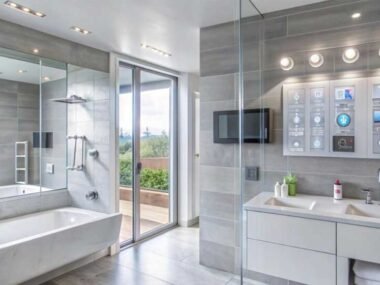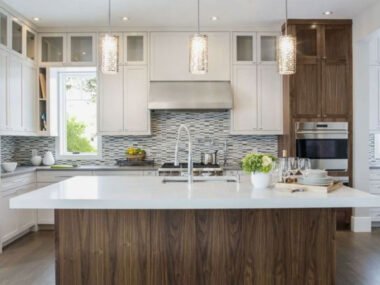Future-proofing your home is not just about equipping it with the latest technology, it is also about financial stability, lasting quality and making the most of your space. When future-proofing your home there are three main pillars you need to focus on: spending strategically, securely saving and effectively storing your assets, both tangible and financial. True future-proofing involves strategic investments in quality, secure financial planning and protecting what you already own.
Strategic Spending – Investing in durability
Foundational elements, such as flooring, significantly impact the longevity and resale value of your home. The visible flooring surface can vastly improve a home’s marketability, and forms the buyer’s first and potentially most lasting impressions. Buyers may be more willing to pay a premium for materials that are low maintenance but durable, as this can reduce the long term cost associated with flooring. Highly personalised, trendy or worn out flooring can devalue a property.
When you buy well, you will only need to buy once, so quality flooring should be considered an asset, not just a decoration. When replacing old carpets or laminate, opting for solid wood flooring provides unmatched durability and timeless style that adds tangible value to a property. Despite the initial upfront cost of such flooring being significantly higher, it is a better financial decision, as there will be less need for replacement, saving money in the long run. Solid wood flooring can be sanded and refinished numerous times throughout its lifespan, which can last as long as a hundred years. This process can restore the flooring to a ‘like new’ condition, providing what is essentially a new floor without needing to pay for a replacement.
Spending on Wellness – Investing in ‘Staycation’ Value
As well as considering the structural qualities of your home, you should also consider how your home affects your quality of life, and if you have invested money into it that will enhance your daily living and wellbeing. Pools and hot tubs can be an investment in both personal wellness and family. For example, the rise of staycations and avoiding costly travel means that people are more inclined to relax at home in their own hot tub after a long week. Similarly, having a pool provides convenient access to a good form of exercise, and this convenience can encourage more consistent activity or make you more likely to stick to a fitness routine.
Such investments can improve mental health and reduce stress, and they can also add long-term appeal and value to a property. The decision to install a pool or hot tub shifts home investment beyond basic function to focus instead on family connection, recreation and year-round wellness. When properly maintained and integrated, these features can be more than mere luxury expenses, and become assets that generate high returns in lifestyle quality and personal health.
Secure Saving – Protecting Your Financial Future
The best home investments will be arguably worthless without a secure financial bedrock, so it is important to have a secure, long-term financial strategy. Without having a robust saving strategy, an unforeseen event can mean that you are forced into incurring high-interest debt or liquidating valuable assets, which can instantly erase any capital gains from your property. Unlike renters, homeowners are responsible for any sudden, major failures like burst pipes or a leaking roof, and these can cost hundreds or thousands of pounds. Financial health is directly linked to home projects, as saving and planning are essential for funding major purchases like new flooring or a hot tub without putting yourself into unnecessary debt.
For example, before making a large purchase, check that you have a secure emergency fund. You should try to have money set aside in a savings account, and check to see if there are any additional benefits that this account may offer, such as gaining interest on money. Ideally, the account should have enough to cover between three and six months of essential household expenses, or enough to cover the cost of emergency repairs.
Effective Storage – Protecting Tangible Assets
Future-proofing means that you are also protecting your valuable, tangible assets, whether these are in use or being stored. For this reason, it is important to invest in high quality packaging and storage solutions to keep your belongings in good condition. For example, high quality packaging, like bubble wrap, is essential when protecting valuable items like documents, sentimental objects or fragile seasonal decorations. This is particularly necessary when trying to declutter your home safely, or when storing items away during home improvements, like installing new flooring. Secure packaging will ensure that assets survive this process undamaged, and effective storage will maximise your space to keep your home tidy, contributing to overall longevity.
Future-proofing is a holistic approach that combines physical quality, financial security and asset protection. You should not be aiming for a perfect home when doing this, but instead be focusing on creating a durable, enjoyable and financially secure future. To start future-proofing, review your current spending, saving and storage habits to look for where you can improve.










